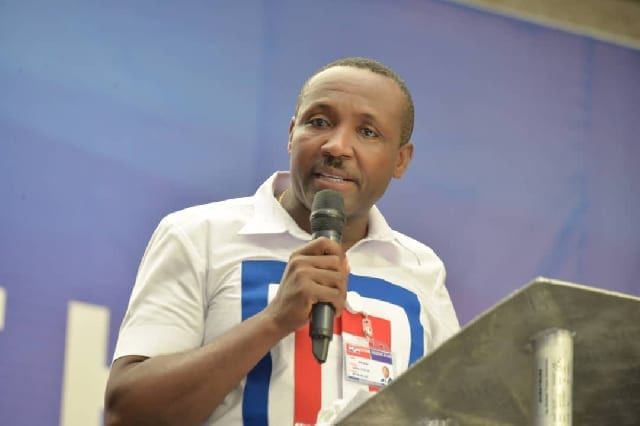The ongoing political tension in Ghana surrounding the suspension of Chief Justice Gertrude Esaaba Torkornoo has intensified with accusations of political maneuvering and compromise against the Council of State. John Boadu, a former General Secretary of the opposition New Patriotic Party (NPP), has publicly criticized the Council, alleging its overwhelming composition of members affiliated with the ruling National Democratic Congress (NDC) has rendered it a tool for President John Dramani Mahama’s agenda. This accusation stems from the Council’s advice to the President, which led to the formation of a committee of inquiry to investigate three petitions seeking the Chief Justice’s removal. Boadu contends that this process is a pre-orchestrated scheme by the President and the NDC-dominated Council to oust the Chief Justice.
Boadu’s argument centers on the alleged partisan makeup of the Council of State, asserting that its near-total dominance by NDC members precludes impartial advice and deliberation. He claims this bias is evident in the Council’s endorsement of the President’s decision to suspend the Chief Justice and establish the committee of inquiry. Furthermore, Boadu alleges that counter-petitions urging the President to halt the removal proceedings have been submitted but deliberately ignored. This, he argues, demonstrates the predetermined nature of the process, reinforcing his claim that the removal of the Chief Justice is a long-held objective of President Mahama and the NDC, dating back to their time in opposition.
The former NPP General Secretary portrays the consultation with the Council of State as a mere formality, devoid of genuine consideration or independent judgment. He suggests that the Council’s alleged alignment with the NDC ensures its compliance with the President’s wishes, effectively rendering it a rubber stamp for the pre-planned removal of the Chief Justice. This alleged manipulation of the Council, according to Boadu, undermines the integrity of a crucial constitutional body designed to provide impartial counsel to the President. The implications of this perceived compromise, he warns, extend far beyond the immediate case of the Chief Justice, threatening the independence of the judiciary and the very foundations of Ghana’s democracy.
The suspension of the Chief Justice and the subsequent allegations of political interference have triggered concerns about the balance of power and the rule of law in Ghana. Boadu’s pronouncements, made during a protest organized by the NPP and other opposition parties, reflect the growing unease within the opposition regarding the government’s actions. The demonstration, dubbed #SaveTheJudiciaryDemo, underscores the opposition’s belief that the judiciary is under attack and its independence is at risk. This protest, coupled with Boadu’s strong accusations, signals a deepening political divide and raises questions about the future of judicial independence in the country.
The core of Boadu’s argument rests on the perceived lack of impartiality within the Council of State. He portrays the body as a partisan instrument, effectively controlled by the ruling NDC. This alleged control, he claims, enables the President to circumvent due process and pursue a pre-determined agenda against the Chief Justice. The disregard for counter-petitions, according to Boadu, further substantiates his claim of a predetermined outcome. This manipulation of the Council of State, he warns, sets a dangerous precedent, eroding the checks and balances essential for a functioning democracy.
The potential ramifications of the Chief Justice’s removal, as highlighted by Boadu, extend beyond the individual case. He portrays the judiciary as the last bastion of impartiality and justice in a political landscape increasingly characterized by partisan maneuvering. The erosion of judicial independence, he cautions, would jeopardize the very fabric of Ghana’s democracy, rendering past struggles and sacrifices for democratic principles meaningless. This dire warning underscores the gravity of the situation, emphasizing the importance of upholding judicial independence as a cornerstone of a democratic society. The situation calls for a thorough and transparent investigation into the allegations of political interference, ensuring that the principles of justice and the rule of law are upheld.














